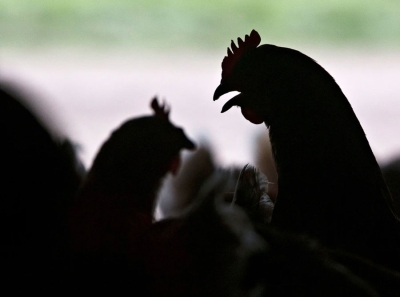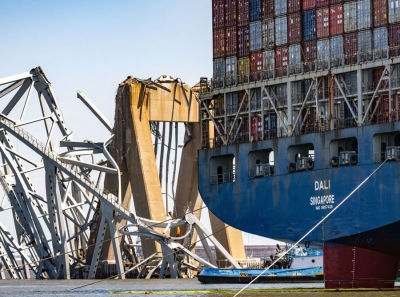Thousands killed in quakes in Turkey and Syria
Thousands of people have been killed in powerful earthquakes in Turkey and Syria while countless more have been left homeless and exposed to the cold. Offers of assistance have come in from the US, China, Russia, Ukraine, Israel and Greece, among others. The high death count is not due to the natural disaster alone, Europe’s press points out.
Poorly built and in the wrong place
Humans play a key role in determining the scope of the tragedies caused by natural disasters, geologist Mario Tozzi argues in La Stampa:
“Human civilisations exist only thanks to a temporary geological consensus that can be overturned without warning. ... Yet we continue to inhabit dangerous regions throughout the Mediterranean without taking this into account. The symbolic image of this earthquake is that of ten-storey buildings collapsing into a heap of rubble — how is that possible? Let’s remember that it is not earthquakes that are deadly, but poorly built houses, and in this respect Turkey — and Syria — are very similar to Italy.”
Greed is to blame
Cumhuriyet sees a deadly system at work:
“Politics does not serve the citizens, but enrichment. And urban looting and land speculation are the fastest and most effective means to achieve that goal. National and local politicians plunder cities and building plots. Construction companies use old and poor quality materials. Those politically responsible do not carry out inspections. The people are uneducated. Morals are corrupt. Everyone is only out for quick profit. ... To sum up: it is not earthquakes that are deadly, nor even the buildings. It is the ‘primitive people’, ‘primitive politicians’ and ‘primitive construction companies’ who are behind the building that ends up looking like the killer.”
Solidarity without politics needed
The scale of the destruction requires that all sides do their best to help, Evrensel insists:
“Support of any kind must not be prevented now. We say ‘prevented’ because that is exactly what we saw with the Elazığ earthquake in 2020. ... We all still remember how flimsy pretexts were used to try to prevent relief measures by the [opposition] CHP and HDP communities — from operating construction machinery to distributing bread. But now is the time to show solidarity with the earthquake victims by sending food, beverages, heating materials, shelter, hygiene articles, everything people need to survive, regardless of what has happened in the past!”
Only a brief moment of hope
Le Quotidien comments on the help that has flooded in from all sides:
“How is this wave of solidarity between sworn enemies to be interpreted? ... Why does a ‘simple’ natural disaster provoke such a unanimous response, regardless of the conflicts and disagreements between the various countries and blocs? Should we conclude that humanity has not completely lost itself in the now almost forgotten bloody war in Syria, followed by the war in Ukraine? ... In reality, only a very faint glimmer of hope emerged in the hours after the devastating earthquake. ... Soon the eyes of the world will turn away again from the dramas on both sides of the border.”
Crisis management could determine election result
The taz’s Turkey correspondent Jürgen Gottschlich explains the political consequences of the catastrophe:
“If Erdoğan manages to put together a convincing disaster relief plan, he could secure his re-election. In Germany, people remember former chancellor Gerhard Schröder, whose efforts against the floods on the Elbe River secured him a surprise re-election. ... If the region in the south-east of Turkey — already considered a trouble area due to war and ethnic conflicts — sinks further into chaos, the opposition will probably make gains. Nevertheless, for the sake of those affected one can only hope that the crisis management will succeed.”









